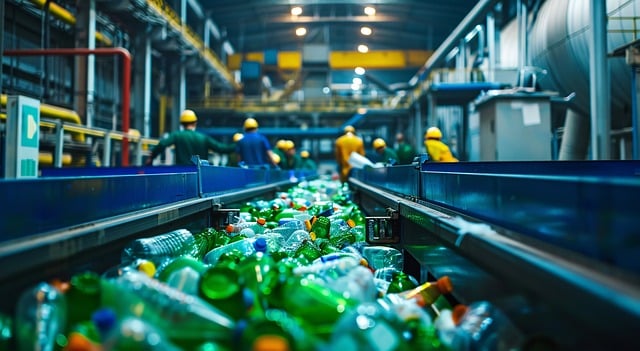As the world grapples with escalating environmental challenges, ocean pollution has emerged as a critical issue demanding urgent and innovative solutions. The oceans, covering over 70% of Earth’s surface, are not just a vital source of biodiversity and climate regulation but also a key component of our global economy. Yet, they are increasingly choked with plastic waste, chemicals, and other pollutants. In response, a range of pioneering initiatives are charting a new course toward cleaner oceans. Here’s an overview of some of the most transformative efforts reshaping ocean cleanup.
1. The Ocean Cleanup Project
One of the most high-profile endeavors is The Ocean Cleanup project, founded by Boyan Slat in 2013. This initiative aims to tackle the Great Pacific Garbage Patch, a massive accumulation of plastic debris in the North Pacific Ocean. The project utilizes a combination of floating barriers and screens to collect plastic, which is then processed into reusable materials. Slat’s ambitious approach includes deploying a fleet of autonomous systems to capture and remove debris, with the goal of removing 90% of floating ocean plastic by 2040.
2. 4ocean’s Cleanup Campaign
4ocean, a company founded by Andrew Cooper and Alex Schulze, operates with a dual mission: to clean up ocean plastic while preventing future waste. Their model involves pulling trash from the ocean using specially designed boats and engaging local communities in beach cleanups. What sets 4ocean apart is their commitment to a sustainable business model; each purchase of a 4ocean bracelet funds the removal of a pound of trash from the ocean. Their efforts have expanded globally, with cleanups taking place in various countries and regions.
3. The Seabin Project
The Seabin Project tackles marine pollution at the dock level with an innovative solution: the Seabin, a floating trash can that collects debris from the water. These devices are installed in marinas, docks, and harbors where they act as floating waste collectors. Equipped with a pump, the Seabin draws in water and filters out trash, including plastic, oil, and other pollutants. This initiative aims to create cleaner marinas and inspire broader adoption of similar technologies in other high-traffic water areas.
4. Clean Ocean International
Clean Ocean International, an organization dedicated to large-scale ocean cleanup, uses a multifaceted approach that includes both offshore and nearshore operations. Their efforts focus on removing debris from high-density areas, such as coastal zones and river mouths, which are critical sources of ocean pollution. By employing advanced sonar and remote sensing technology, Clean Ocean International is able to identify and target areas with high concentrations of debris, optimizing their cleanup efficiency.
5. Ecolab’s Circular Economy Approach
Ecolab, a global leader in water, hygiene, and energy technologies, is integrating ocean cleanup efforts into a broader circular economy strategy. Their approach involves not just cleaning up existing pollution but also preventing future waste through improved product design and waste management practices. Ecolab collaborates with businesses and communities to reduce plastic production and promote recycling. Their initiatives are designed to create a closed-loop system where waste is minimized and resources are continuously reused.
6. Citizen Science and Grassroots Movements
Grassroots movements and citizen science are also playing a crucial role in ocean cleanup. Organizations like the Ocean Conservancy and Surfrider Foundation mobilize volunteers to participate in beach cleanups and data collection. These efforts not only help remove trash but also raise awareness about ocean pollution and advocate for policy changes. Citizen scientists contribute valuable data on the types and quantities of debris, informing targeted cleanup strategies and prevention measures.
7. Innovative Materials and Biodegradable Alternatives
In addition to cleanup technologies, there is a growing emphasis on preventing pollution through innovative materials and biodegradable alternatives. Companies and researchers are developing eco-friendly materials that can replace traditional plastics and break down more easily in the environment. From algae-based packaging to edible cutlery, these innovations aim to reduce the reliance on single-use plastics and mitigate their impact on marine ecosystems.
The Road Ahead
While these initiatives represent a significant leap forward in the fight against ocean pollution, the scale of the problem necessitates a continued and collective effort. The success of these projects relies not only on technological advancements but also on global collaboration, policy changes, and public awareness.
The tide of ocean cleanup is turning, driven by a confluence of innovation and determination. As we navigate the complexities of ocean pollution, these pioneering efforts offer hope and a roadmap for a future where our oceans are once again vibrant and thriving. By supporting and expanding these initiatives, we can work towards a world where the oceans are no longer the world’s trash can but a beacon of environmental stewardship and sustainability.
Did you know that leading brands are now recycling and repurposing ocean plastic to create products or components, helping to protect the environment and contribute to sustainability? Learn more.




